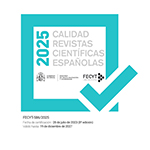Cultural factors, quality of government and the effectiveness of Supreme Audit Institutions in Sub-Saharan Africa
Abstract
Given the importance of public financial management for people well-being, most countries around the world have Supreme Audit Institutions (SAIs) as an instrument to help achieve better Public Financial Management. SAIs play a key role in ensuring public management accountability. This paper aims to investigate the determinants of Supreme Audit Institutions’ effectiveness in Sub-Saharan Africa. Models are estimated for a sample of Supreme Audit Institutions from 45 countries. The results indicate that the effectiveness of SAIs in Sub-Saharan Africa is associated with the Institutional Quality of Government which takes into account six dimensions of country governance: voice and accountability, political stability, government effectiveness, regulatory quality, rule of law, control of corruption. In the same vein, SAI effectiveness is found to be associated with institutional and cultural aspects, mainly, the British colonial legacy and the continued adoption of the Westminster SAI model.
Downloads
Article download
License
Copyright (c) 2022 Cuadernos de Gobierno y Administración Pública

This work is licensed under a Creative Commons Attribution 4.0 International License.
In order to support the global exchange of knowledge, the journal Cuadernos de Gobierno y Administración Pública is allowing unrestricted access to its content as from its publication in this electronic edition, and as such it is an open-access journal. The originals published in this journal are the property of the Complutense University of Madrid and any reproduction thereof in full or in part must cite the source. All content is distributed under a Creative Commons Attribution 4.0 use and distribution licence (CC BY 4.0). This circumstance must be expressly stated in these terms where necessary. You can view the summary and the complete legal text of the licence.







